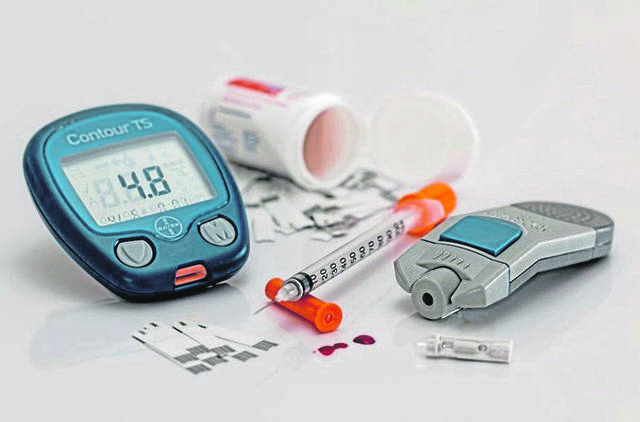Diabetes is an epidemic in Pennsylvania. About one in 10 local adults lives with the disease. And the burden is growing: Roughly 3.5 million state residents are “pre-diabetic,” meaning their blood glucose levels put them at severe risk of developing diabetes later in life.
The majority of these folks — 95% — suffer from “type 2” diabetes. Type 2, which is typically diagnosed later in life, occurs when the body is unable to use existing insulin hormones to control blood sugar levels. Poor diet, lack of exercise and other unhealthy life choices are major contributors to type 2 diabetes. The other version, “type 1,” occurs when the body isn’t capable of producing enough insulin on its own. Type 1 diabetes is often inherited and diagnosed at a young age.
Regardless of the type, those living with diabetes depend on cutting-edge pharmaceuticals to stay healthy — to ward off stroke, limb amputation, blindness and even early death.
Efforts underway in Washington could put these patients at risk. In an attempt to rein in drug spending, some federal officials are backing a measure that would effectively impose price controls in Medicare for treatments administered by medical professionals. It’s a risky plan that will reduce access to breakthrough products.
Fifty years ago, insulin had to be derived from animals, and dosing was often fatally imprecise. Today, insulin is synthesized in the lab, and dosing is calibrated for each individual patient.
The original insulin pump was enormous and had to be carried around like a backpack. Today’s pumps fit in your pocket.
Thirty-five years ago, about half of diabetics would eventually go blind. But today’s medicines cut the risk of blindness down to just 5%.
And there are more breakthroughs on the horizon. Researchers are in the early stages of creating an artificial pancreas, and they’re running human trials for cutting-edge “beta cell encapsulation” therapies, which prevent the destruction of insulin-secreting cells.
But Americans may never benefit from these advances if price control policies win out.
The Trump administration wants to tie Medicare reimbursements for certain drugs to the prices paid in foreign countries where the government imposes strict price controls. In the short term, this proposed plan might save the government some money. In the long term, it would harm Pennsylvanians by reducing access to medicine.
Because of the risks inherent in the drug development process, drug makers shy away from doing business in nations with price controls and socialized health care. Patients living under price controls must wait months for the latest therapies to hit pharmacy shelves. And even then, their government can outright deny them access to certain treatments.
Consider France and Portugal. Both countries utilize some form of government price caps to curb overall drug expenditures.
The drug access disparity between these nations and the United States is astounding. Portuguese patients have access to a mere 20% of all diabetes drugs launched between 2011 and 2018. French patients? Just 13%. For Americans, meanwhile, more than two-thirds of all new diabetes drugs are available.
That’s a stark contrast — and one that can make all the difference for folks living with diabetes on a daily basis.
I have a lot at stake in this fight. I was diagnosed with type 1 diabetes when I was 12. New medicines will help me continue to live a long, healthy life. And I can do just that in the United States because our government values human lives above costs. That’s not something we should take for granted.
Fortunately, there are good options for lowering patients’ pharmacy bills without sacrificing drug access.
Smartly, the IRS recently ruled that health insurers can cover insulin as “preventive care,” which will lower out-of-pocket costs for patients with high-deductible insurance plans. And in Congress, some lawmakers are pushing to cap out-of-pocket spending in Medicare’s “Part D” prescription drug benefit, which will help seniors and those living with disabilities afford the medications they pick up at the pharmacy.
Though well-intentioned, price control policies will ultimately deprive patients of top-tier drugs and increase rates of disease and death. Pennsylvania’s Capitol Hill contingent — especially our senior senator, Bob Casey — can fight for patients like me by opposing policies that threaten access to life-saving medications.
Lauren Mishoe of Harrisburg is a type 1 diabetic and the mother of two daughters. She is a supporter of JDRF (formerly the Juvenile Diabetes Research Foundation) and an advocate for the T1D community.








